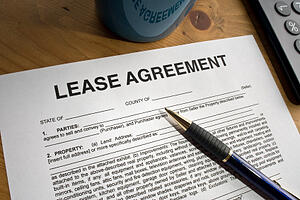 Since 2010, the Financial Accounting Standards Board has been working with the International Accounting Standards Board to attempt to bring the United States' Generally Accepted Accounting Principles for lease accounting in line with international norms. This change would require reclassifying many operating leases as capital leases. It could have wide-ranging effects on the corporate real estate industry.
Since 2010, the Financial Accounting Standards Board has been working with the International Accounting Standards Board to attempt to bring the United States' Generally Accepted Accounting Principles for lease accounting in line with international norms. This change would require reclassifying many operating leases as capital leases. It could have wide-ranging effects on the corporate real estate industry.
Currently, companies have two choices for lease accounting: they can treat long-term leases as capital leases or as operating leases. A capital lease requires you to put the property on your balance sheet as an asset and reflect the lease obligation as a debt. For tax purposes, you depreciate the asset over the life of the lease and you also write off the interest portion of the lease payments. An operating lease, on the other hand, is completely off-balance sheet. Companies with operating leases don't record assets or liabilities and get to write off the entire lease payment as an expense. Most companies that have lots of leased space and equipment opt to treat their leases as operating leases rather than as capital leases.
Outside the US, the IASB standards for lease accounting are much more stringent, making it harder for companies to place long-term leases off of their balance sheets. As a part of a broader trend to bring its standards more in-line with the rest of the world, in 2010, FASB announced that they would be tightening their lease accounting procedures to comply with IASB. This caused a great hue and cry in the US accounting and business communities and, since then, the two organizations have been working together to try to come up with a solution.
FASB and IASB came up with a solution that allowed companies to effectively continue to choose between capital and operating statuses for their leases in mid-2012. Since it would still have limited the ability for companies to engage in off-balance sheet lease accounting, it was still controversial. As of the end of January of 2013, they are meeting again to discuss a new draft standard. Evidently, the draft standard will allow for two types of leases and will allow companies to classify at least some property leases as "type 2" operating-style leases. This will help to mitigate the impact of the new standards.
As of March of 2013, no standard has been written or released yet. FASB and IASB have announced that a draft of the new standard will be released at some time in the second quarter. It will then spend most of the rest of 2013 in a holding pattern as entities make comments on it, with a final draft standard coming around the end of the year or the beginning of 2014. At that point, the standard would likely not go into effect until 2017. Then again, if the draft standard does not get support, it could need to go back for more revisions, further delaying the process.
Ultimately, it's hard to tell where the process will end up. It is relatively clear that lease accounting standards will change at some point in time and that companies will have to capitalize at least some of the leases that they currently treat as operating leases. However, the details or this will work and the exact time frame of when it will happen still remain unclear.
In preparation for the impending FASB changes, we recommend you abstract your leases and categorize them to pretect yourself from time lost to adoption of a new standard. Here's 5 Tips for Effective Lease Abstraction.







